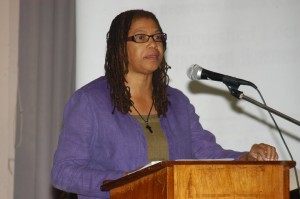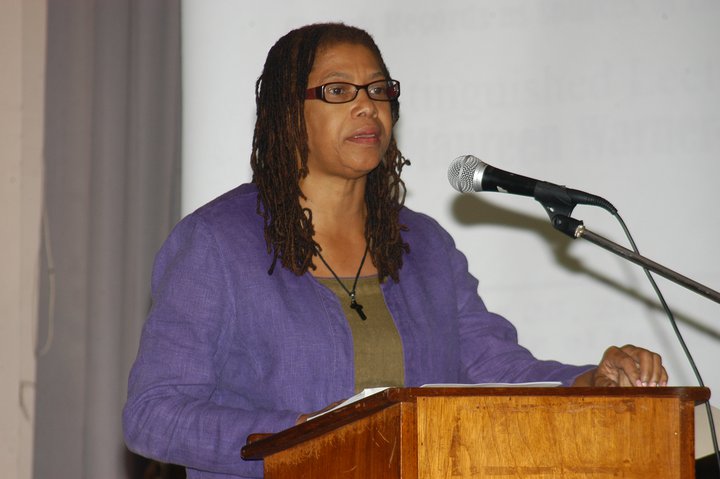Church Dividing Idols and the Belhar Confession – by Christian Iosso

Is the church doing “the right thing for the wrong reason”?
As the Presbyterian Church (U.S.A.) moves toward adopting the Confession of Belhar, a persistent question has been whether the church is “doing the right thing for the wrong reason,” in T.S. Eliot’s fine old phrase. Strong as its focus is on the unity of the church, is Belhar being adopted as an affirmation of diversity, to add a confession from the Global South to our Middle Eastern and European collection? Even if it is such a symbol of diversity for the PCUSA, is this not a good thing to symbolize, and does that symbolic role undercut its meaning and word to us? Further, what if there is more than one “right reason?” The Christian Reformed Church in North America is using Belhar precisely to deepen the need for multi-cultural congregational development in their largely Dutch church. The CRC and the Reformed Church in America may also be affirming Belhar as a sign of change and openness to statements of faith more recent than the canons of Dort. And we may be adopting it not as an act of ecclesiastical tokenism, but as an act of inter-Reformed solidarity.
It seems apparent, as with all the confessions in our Book of Confessions, that the circumstances of Belhar’s creation will be seen differently by every communion adopting and using its words in their own time and place. The largely non-violent liberation process in South Africa in fact included a Kairos document stronger than Belhar in its critique of church and state theologies, though Belhar clearly connects the ideology of racial separation with idolatry of race and culture. Belhar itself has not been affirmed by the white “parent” branch of the Reformed family, but to lift it up is to affirm the church’s public role in the defining social struggle of 20th Century South Africa. The accompanying letters—which are to my mind essential—point to the way the struggle for reconciliation has not caught up to the main text’s gospel of liberation and solidarity with the poor and oppressed. Those letters address the issue of reception and underline the challenge that Belhar posed and poses still in its South African setting.
The impetus for the PCUSA consideration
The impetus for the PCUSA’s consideration of Belhar was a report by a task force on reparations for racial injustices that actually proposed a new confession in the North American setting that would include an address to the racism that continues to “shadow” our culture. Would our church have been ready for such an exercise 20 years after the Brief Statement of Faith and almost 50 since the Confession of 1967? Yet in adopting a “new” confession now (even if it is 25 + years old), do we foreclose the opportunity to do a new confession for a generation—or until a new kind of church union?
To my mind, Belhar broadens its key racial equality theme to a more universal justice concern, based first in the unity and then task of reconciliation, which prompts the challenging of all injustice. I believe the confession would have been stronger to go with church as “body of Christ” rather than “possession” in the third section, though it may strengthen the idea of God’s sovereignty over all. That language may also suggest that God has primarily extrinsic relations with the church. But a more direct question—a question that is about church-dividing threats in the US—is what Belhar says to racial segregation here that is based on economic structures, not explicit laws. Belhar’s relative silence on economic matters (and gender matters) may address unity as a matter of principle, but not address structures of inequality and practices of dispossession that mark the US today. Ironically, the economic fragility of many African-American congregations in the PCUSA may mean a whiter church at the end of the current recession even as a South African confession is adopted.
Belhar and its confessional cousin, Accra
Compensation for Belhar’s relative quiet on economic matters lies not only in The Confession of 1967 and several other confessions, but in its confessional cousin, the statement of the World Alliance of Reformed Churches in Accra, Ghana, in 2004. Though resulting from an international Reformed “processus confessionis,” and explicitly naming anti-regulatory or “neo-liberal” economic globalization as a church-dividing matter, Accra not considered a confessional document. At the same time, however, it clearly functions in a confessional way with regard to a scripture-guided reading of the “signs of the times,” its ethical teaching and mission analysis. Accra received criticism for using the term “empire” for the hegemony of powerful state and private actors using their disproportionate power to control resources (at the same time the Bush Administration and neo-conservatives were celebrating the term). While Accra also does not spend much time on matters of gender inequality and outright subjugation in some places, it does integrate an ecological ethic of sustainability in its thinking. Longer in length than Belhar, Accra’s theological and ethical statement is also complemented by a program report developed by the member communions of what is now, since a union last year, the World Communion of Reformed Churches.
The relations between Belhar and Accra were the subject of a colloquium held January 15-17, 2010 at Stony Point, NY, convened by the North American Covenanting for Justice workgroup and drawing participants from eight of the Reformed churches in the US, Canada and the Caribbean. A link to their report can be found here. Clearly Belhar and Accra are children of Barmen and share “family resemblances,” not least in the Reformed sense that it is good to “confess” with clear and timely emphasis the ethical and theological challenges facing the church. The Stony Point colloquium also looked at the many practical tasks before the churches and their members, and reflected on another recent document with prophetic and confessional importance, “A Moment of Truth,” by the beleaguered Palestinian Christians.
Thus I close with a quote from that colloquium which shows the Belhar Confession already in use:
“We urge the new World Communion of Reformed Churches (WCRC) to continue its covenanting, witnessing, and confessing heritage. We encourage reading the Accra statement or confession in the current “great recession,” affirming its stand against idols of de-regulation, unlimited consumption, and unlimited compensation for some. The words of the Belhar Confession came alive as we prayed at the news of the grievous earthquake in Haiti: “the church must stand by people in any form of suffering and need.” The group supports generous aid for re-building Haiti, cancellation of debt, and opening of US and other agricultural markets. With regard to the Kairos document recently put forth by Palestinian Christians (Dec 11, 2009), this also was seen, in the light of Accra and Belhar, as a witness to be considered in the Uniting General Council’s discussions.”
Let us now respond in the spirit of Belhar to the struggles of North Africa and the Middle East, and the climate-influenced earthquake tragedies of New Zealand and Japan.


The objectivity of “doing the right thing” should not surrender to the subjectivity of “wrong reasons”.